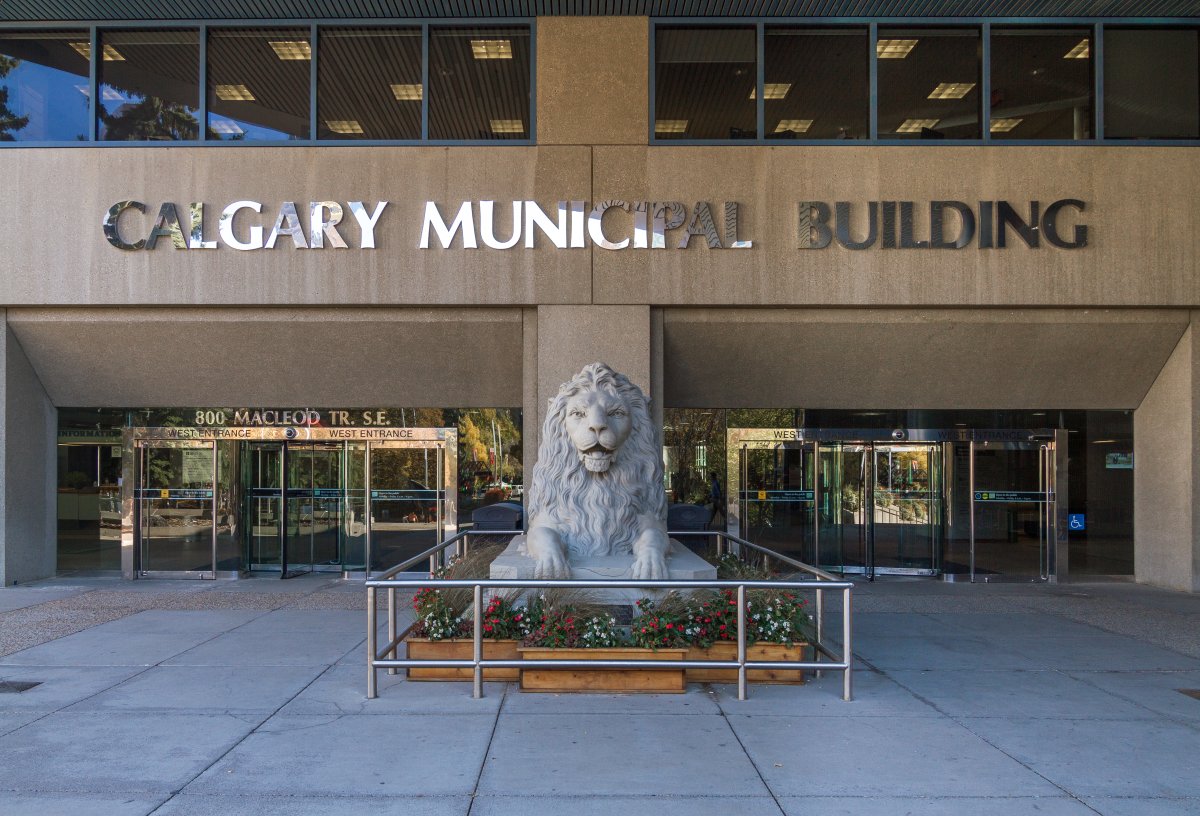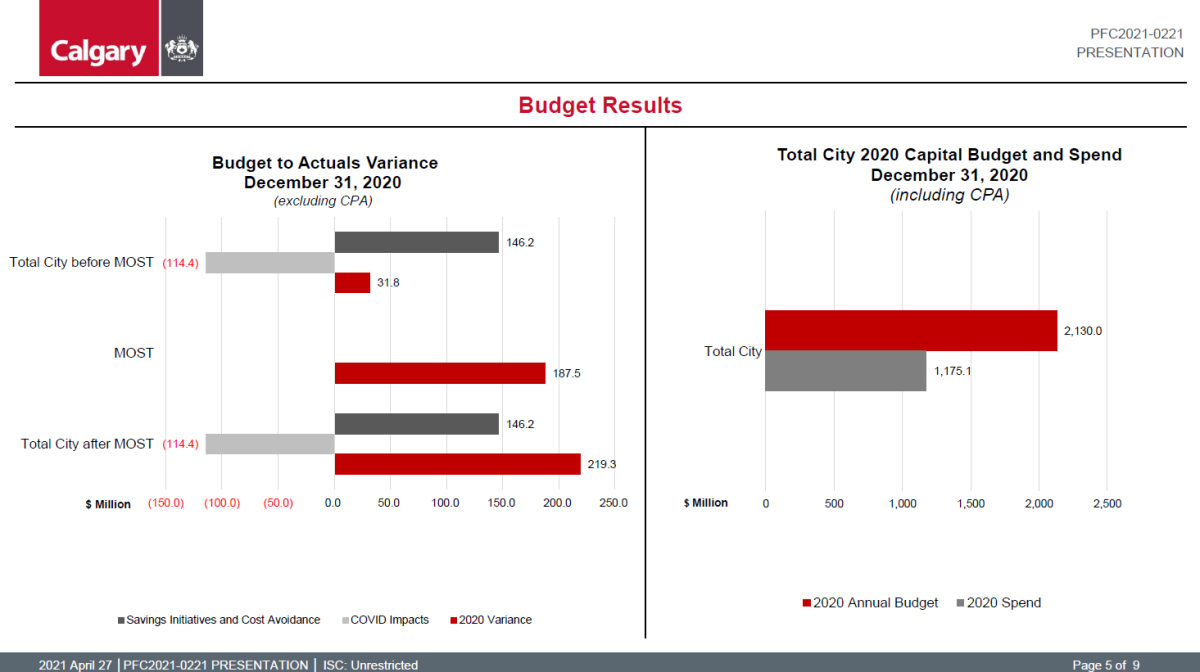A recent financial report shows the City of Calgary’s surpluses from 2020 are better than originally thought.

Last week, the city’s annual report provided to Calgary’s audit committee showed $98 million in surplus cash, the result of strict savings and pandemic-related efficiencies.
On Tuesday, the year-end accountability report, presented to the priorities and finances committee, showed even more surpluses.
When accounting for the Municipal Operating Support Transfer from the provincial and federal governments, Calgary spent $219 million less than it brought in.
“Overall, this $219-million variance led to a contribution of $55.8 million to the operating budget savings account and $163.5 million to the fiscal stability reserve to be used for ongoing pandemic needs and economic recovery,” Al Louie, manager of corporate initiatives, told the committee.
Louie said the city’s capital portfolio was rebalanced to make space for a $73-million cut of Municipal Sustainability Initiative (MSI) funds, but Calgary was able secure $185.2 million in Municipal Stimulus Program (MSP) funding. The Alberta government administers MSI and MSP.
“Even when faced with this rapidly evolving environment that we found ourselves in 2020, the corporation continued its tireless work to meet priorities and support citizens, customers, communities and businesses,” Louie said.
Through the pandemic, the city was able to hand out $73 million in COVID-related supports like fee and levy relief for businesses, support for mass vaccinations, exercising adaptive roadways and affordable housing investments.
“We’ve been lucky enough over the course of the last year to access funding from other areas of government as well as from our own savings,” Mayor Naheed Nenshi said.
“We managed to save quite a lot of money in the 2020 budget year by managing things like overtime, by not hiring seasonal workers, by reducing the overall quality and level of service in some ways and, of course, we had to lay off a very large number of people in order to manage that.”
But the city’s chief financial officer had a warning for the councillors about depleting the city’s rainy day fund — also known as the Financial Stability Reserve (FSR).
On Monday, city council approved a $200-million funding package to kickstart downtown renewal, $63 million of which will come from FSR.

And on Tuesday, the finances committee recommended council release another $81 million to complete the flood disaster recovery program, which dates back to the 2013 flood.
CFO Carla Male reminded the committee that, with approximately $172 million still in the FSR, the city is still in the grips of the pandemic.
“Had we not received funding from other orders of government, we would have needed to use funds from our fiscal stability reserve (for those projects),” Male said.
“I would just remind everyone of the (dynamism of the situation) and the understanding that the pandemic will have trail-on effects into 2022.
“We have covered off our anticipated operating needs and the COFLEX funding (for pandemic relief) for 2021. But there still is the unknowingness of what the pandemic will bring along with any other needs for that.”
Male said the target for the rainy day fund is 15 per cent of the city’s tax-supported gross expenditures, net of recoveries. Right now that’s at just over 10 per cent.
“I think the work that’s being done around the totality of our reserves is really, really important because that 15 per cent target was set at a different time and a different economic and fiscal reality for our city,” Ward 8 Coun. Evan Woolley said, noting that the total reserves today are greater than what the city had in 2014.
With less than six months until a new council will be sworn into office, Woolley wanted to “give the new council some of the financial capacity to deliver on the things that people campaigned on.”
Ward 1 Coun. Ward Sutherland agreed with the need to keep enough money in the emergency fund, especially with the ongoing pandemic.
“We need to keep powder in the keg because things are very fluid right now,” Sutherland said.
“We don’t know what’s going to happen with COVID.
“And again, we don’t have commitment from the federal government to do the program again.
“We could be caught with our pants down and suddenly need additional funds.”
- What is a halal mortgage? How interest-free home financing works in Canada
- Capital gains changes are ‘really fair,’ Freeland says, as doctors cry foul
- Budget 2024 failed to spark ‘political reboot’ for Liberals, polling suggests
- Tesla’s net income drops 55% in first quarter amid falling global sales









Comments